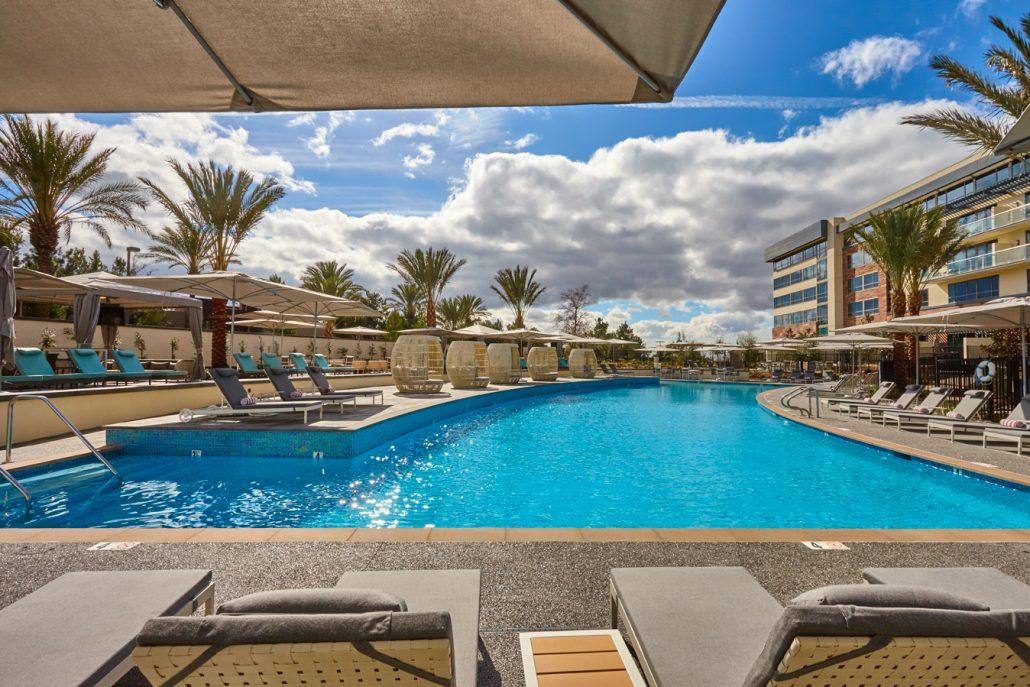Viejas Casino & Resort San Diego California
- Viejas Casino & Resort San Diego California Mission Beach
- Viejas Casino & Resort San Diego California Ocean Beach
A flat-screen satellite TV, seating area, and iPod docking station are provided in each room at Viejas Casino and Resort. Coffee-making facilities and a small fridge are also included. A fitness centre, billiards, and bowling are all on site at the Resort and Casino Viejas. A business centre is also available for guest convenience. The Viejas Band of Kumeyaay Indians owns and operates Viejas Casino & Resort, Viejas Outlets, and Ma-Tar-Awa Recreational Vehicle Park. The heart of the Viejas Band of Kumeyaay Indians’ entrepreneurial achievements is Viejas Casino & Resort, recognized as one of the most respected and successful Indian gaming resorts in California.
Tribal governments with casinos have long held that their gaming operations are the most stringently regulated in the gaming industry.
Is this true?
You bet it is!

To put gaming into perspective, tribal government gaming, with 321 gaming operations nationwide, accounted for only 16.3 percent of industry revenues in 2000. Gaming in the state of Nevada alone, included 2,806 privately owned or publicly traded corporate operations in that same year. Commercial gaming, including riverboat gaming and Atlantic City and Nevada casinos, took in 43.7 percent of gaming revenues, with state lotteries, charitable gaming, horse racing and internet gaming accounting for the balance. Nationwide research conducted by the National Indian Gaming Association (NIGA) reports that tribal governments spend $212 million annually to regulate their gaming operations. This is compared to $155 million that states spend for regulatory activities covering casinos and riverboat gaming. Tribal gaming operations employ 2,800 regulators, as compared to 981 for riverboat gaming, 720 for Atlantic City and 432 for Nevada gaming operations.
Indian gaming operations at Viejas Casino and other tribes in California are subject to regulation by the U.S. Government, state of California, pursuant to tribal-state compacts and the respective tribal governments. This compares with commercial casinos, which are subject primarily only to state regulation.
At Viejas, the tribal government budgeted $4 million in 2006 for gaming regulation and surveillance. Another $6 million was budgeted by Viejas Casino for security personnel.


The Indian Gaming Regulatory Commission, as governed by the Indian Gaming Regulatory Act, is responsible for issuing federal regulations and ensuring tribal government compliance with the law.

The national commission also regulates bingo operations and has established minimum internal control standards based on those used by New Jersey and other gaming jurisdictions. The standards cover audits, cash and credit procedures, surveillance, electronic data processing, gaming devices, bingo and pull-tabs, card and table games, as well as pari-mutuel betting.
Tribal government gaming proceeds are also subject to oversight by the Bureau of Indian Affairs. Tribal government casinos also fall under U.S. Department of Treasury Title 31 regulations, governing financial transactions to prohibit money laundering. In addition, Indian gaming operations are subject to U.S. Justice Department and FBI investigations when it appears violations of federal law have occurred. Tribal gaming facilities are also subject to health and safety regulations promulgated by the federal Occupational Safety and Health Administration, and the Environmental Protection Agency.
At the state level, the framework for tribal government gaming falls under the California Constitution, as enacted by the voters in March 2000, when they approved Proposition 1A, permitting tribes to enter into tribal-state gaming compacts.
The compacts, such as those entered into by the Viejas Band of Kumeyaay Indians, other tribal governments and the state of California, provide for regulation by the California Gambling Control Commission. While tribes are the first line of regulators by federal law, the California Gambling Control Commission has jurisdiction over areas agreed to by the tribes in the 1999 tribal-state compacts. These include operation, concentration, supervision of gambling establishments, and persons or things having to do with the operations of gambling establishments in the State of California.
The interpretation of final authority in regulatory matters, plus the requirement for government-to-government consultation by the governor’s offices and tribes on regulatory expansion by the commission, is an area where a number of issues remain unresolved. In California, tribal casinos are also subject to regulatory jurisdiction by the Division of Gambling Control within the state Department of Justice.

Viejas Casino & Resort San Diego California Mission Beach
Under the authority of the California Attorney General, the Division of Gambling Control is the law enforcement entity for gambling activities for the State of California, and it is the entity that conducts criminal background investigations for the Commission on gambling license and work permit applications received by the Commission.
Viejas Casino & Resort San Diego California Ocean Beach
The tribal governments themselves provide frontline, day-to-day regulation of Indian casinos under ordinances that are consistent with state and federal law, many of which are more stringent than those standards for commercial gaming. For gaming operations at Viejas, regulatory activity, including casino surveillance, rests with the independent gaming commissioner, whose responsibilities are governed by a tribal gaming ordinance. Reporting directly to the tribal council, the tribal regulators and compliance staff are completely independent from casino management.